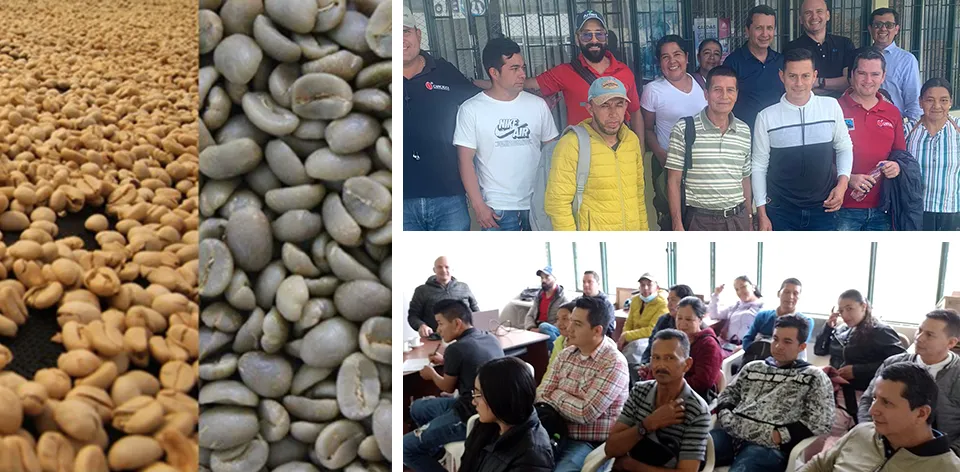 30/5/2024
30/5/2024
Strengthening Coffee Farming in Cauca

Colombia has over 6.2 million hectares suitable for coffee cultivation, accounting for 5.4% of the national area.
Cauca is the fourth department in production at the national level.
The first 10 departments with the greatest aptitude and production of coffee at the national level are: Huila, Antioquia, Tolima, Cauca, Caldas, Santander, Valle del Cauca, Risaralda, Nariño, and Cundinamarca.
Tambo, Cauca. (@UPRAColombia, @claudialili76). Cauca tastes like coffee; its nearly 94,500 hectares cultivated with this delicious bean confirm it. A department where 99% of coffee growers are small producers, with less than 5 hectares, but generating over 65,000 direct jobs.
Cauca boasts landscapes and geographical characteristics that make it an ideal place to find the best flavor of our Colombian coffee; for this reason, the Rural Agricultural Planning Unit (UPRA) conducted, with coffee growers from El Tambo, Cauca, the "Workshop on Cost, Productivity, and Price Survey for the Financial Evaluation of Coffee Cultivation"; an exercise that also progresses in the leading production departments nationwide: Huila, Antioquia, Santander, Caldas, and Tolima.
UPRA technical expert David González describes the experience: "We have the participation of small producers, CafiCauca, the Coffee Growers Committee of Cauca, the Mayor's Office of El Tambo, and regional and national institutions; together, we combine efforts aimed at improving the productive potential of Colombian rural areas, the social, environmental, and productive conditions of coffee growers, and food security and sovereignty."
El Tambo has 8,500 hectares of coffee, distributed among 8,300 coffee producers, located on 11,600 farms, with an average of 0.8 hectares in which mainly Castillo and Cenicafé varieties are produced. Likewise, cultivation management under shade was identified, with average densities of 5,100 trees per hectare, in association with plantain, corn, and beans.
These technical exercises will continue to be developed hand in hand with the Ministry of Agriculture and Rural Development, UPRA, the Governors, national and regional entities, and will have coffee growers in Colombia as protagonists with the aim of improving sector information to achieve coffee farming with social and economic justice for all families cultivating the bean.

